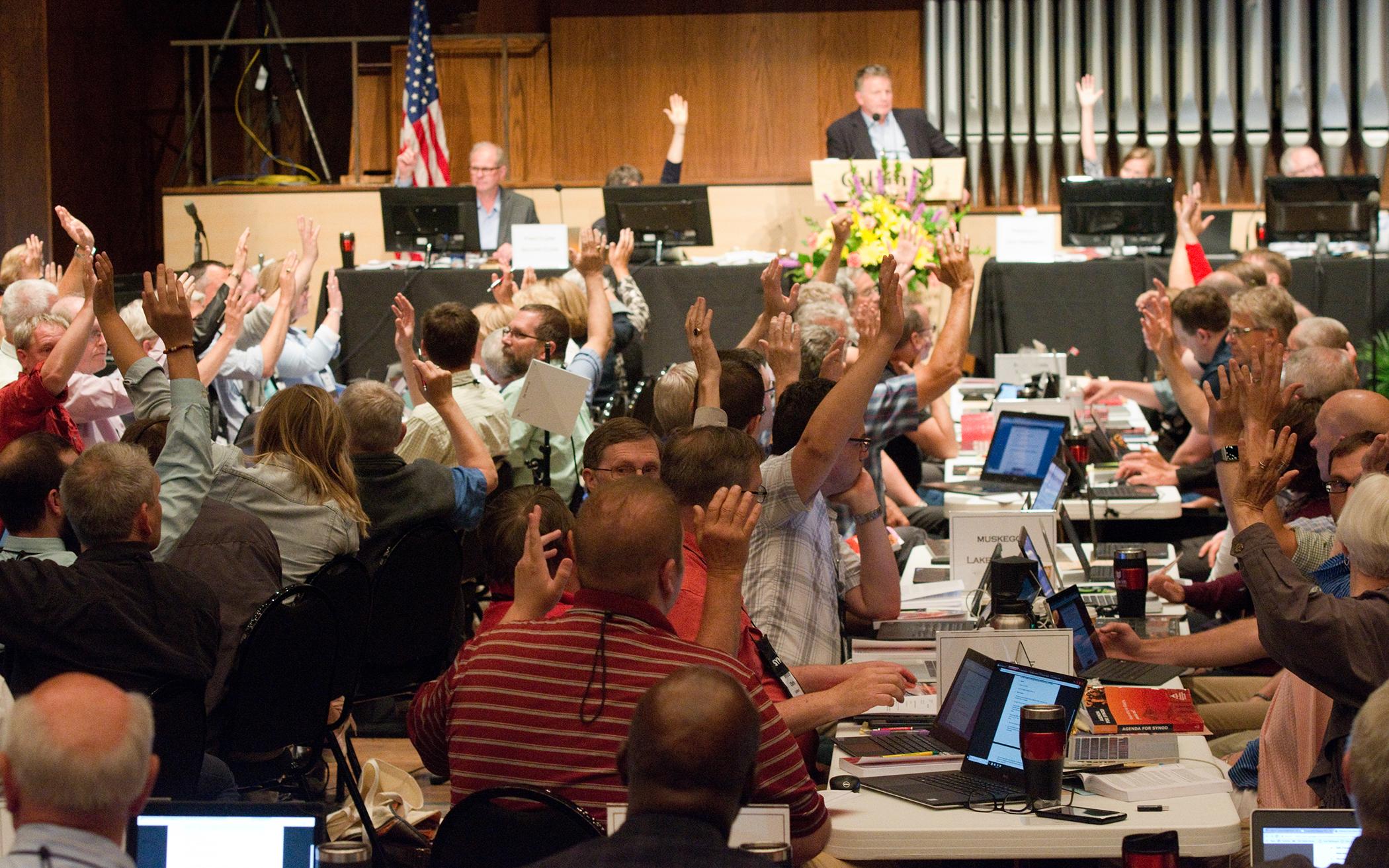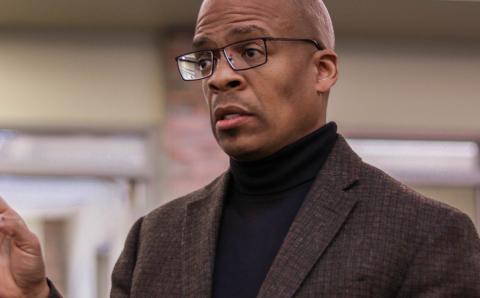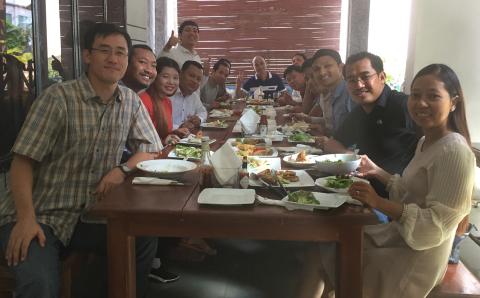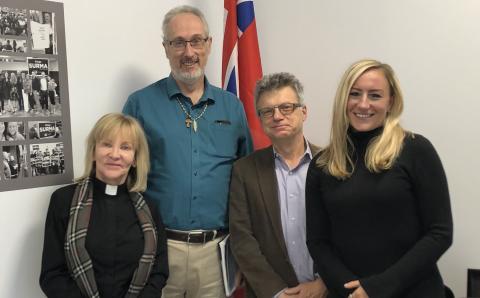Shorter speeches. More delegate and leadership training. More time for intentional dialogue.
Those are some of the recommendations coming from the Synod Review Task Force, appointed by Synod 2016 to review the principles and practices of the Christian Reformed Church’s synod (annual leadership meeting).
Rev. Williams Koopmans, reporter for the task force, said, “There are numerous changes that are being proposed, none of which are truly radical or drastic. It is more helpful to see the extensive list of recommendations as a fine-tuning of a system that already works well but can be improved in terms of preparation and training, election of officers, and making strategic and optimal use of the allotted time.”
In addition to looking at the procedures for major assemblies in other denominations and ecumenical bodies, the task force analyzed the evaluations by delegates and advisers of three recent synods and looked at the time allocations of Synods 2016 and 2017.
Those evaluations showed that delegates expressed a high degree of satisfaction with the way that synod operates, but there are areas that can be improved.
Speeches are Too Long
According to the task force, a perennial concern in synod evaluations are that delegate speeches are unnecessarily long and that certain delegates speak repeatedly, to the detriment of fair discussion. The task force recommends that speeches be limited to three minutes, except in cases where English is a second language or interpretation is required.
Delegates and advisers, especially first-timers, can find the extensive agenda and fast pace of synod a challenge. The recommendation is to provide enhanced training through online and printed materials and in sessions led by trained educators before synod begins. The task force also recommends having an on-site mentor/guide available for young adult representatives and ethnic minority persons to familiarize them with synodical procedures.
Agenda summaries and easy-to-read guides would provide additional training. A further recommendation is that all delegates be encouraged “to be aware of power dynamics” that can happen in synod discussions.
For additional continuity, the task force recommends encouraging classes to send one or more delegates to two consecutive synods. It also recommends requiring each classis to include at least one woman or one ethnic minority person in its delegation.
Rules Are Confusing
Synod operates with Rules of Synodical Procedure, similar to Robert’s Rules of Order but recognizing the ecclesiastical nature of synod. However, ambiguity in some of the rules of synodical procedures can be confusing for officers and delegates alike. The task force is recommending a number of amendments and clarifications to the Rules for Synodical Procedure. It would also like to see a parliamentarian appointed to aid the officers of synod.
The task force also recommends that by 2020, synod will elect three officers at the end of synod to serve following synod, allowing them to attend meetings of the Council of Delegates (which acts on synod’s behalf between the annual meetings), and participate in training related to synodical governance and procedures. The position of second clerk would be eliminated.
More Time to Dialogue
The task force recommends that synod also provide a space for purposeful dialogue on agenda items, whether in advisory committee meetings or plenary sessions. It recommends the process of a Native American talking circle or other method to ensure that everyone has an opportunity to be heard.
The dialogue is intended to be among synod participants, not with people who aren’t there. The task force noted that use of social media has been a challenge in maintaining the deliberative nature of synod. “Live streaming provides the opportunity for social media contact, influence, and strategizing to be communicated by non-delegate observers to delegates at synod during the course of deliberations. This can cause interference with the deliberative nature of the delegated assembly,” the task force wrote. It considered recommending a thirty minute delay in the live stream but found the cost to be prohibitive. It opted instead to emphasize appropriate boundaries during the orientation training.
The task force noted that there is a growing desire that synod include increased opportunity for vision casting. “While it is not consistent with the governance purpose and goals of synod to structure as a visioning rally … synod nevertheless should be a place to celebrate, refine, and reflect on the vision of the CRCNA.” It sees a possible solution in occasionally holding a “themed” synod, revolving around one particular topic through its worship times and presentations. Prayer would become more central to worship and a more intentional feature of synod’s work sessions.
In a time of tightening budgets, the task force is also recommending that synod continue to be supported by ministry shares, but introduce a modest contribution by classes in the form of a delegate registration fee and a partial payment of travel costs.
Rev. Thea Leunk, chair of the task force, said that in her view the greatest enhancement to synod from the recommendations is creating more space for dialogue. “Synod will be more inclusive of all the voices of the delegates present, and that will result in more engagement with and understanding of each other,” she said. “Synod can be a model of how to engage gracefully as a church in meaningful and sometimes difficult conversations.”
The entire report to synod can be found here. Korean version here.
About the Author
Gayla Postma retired as news editor for The Banner in 2020.







